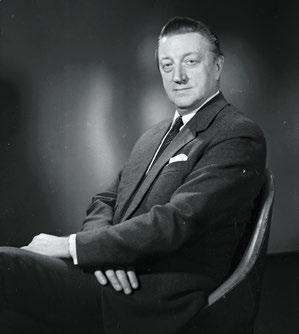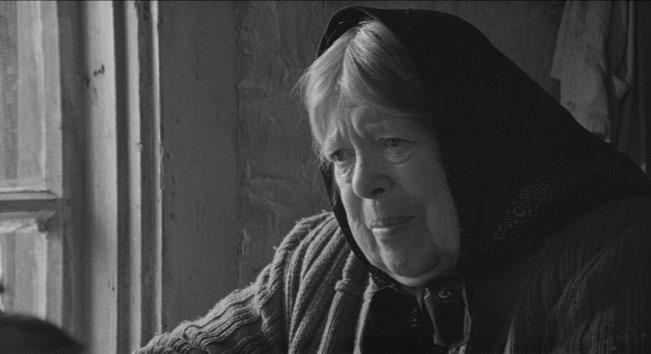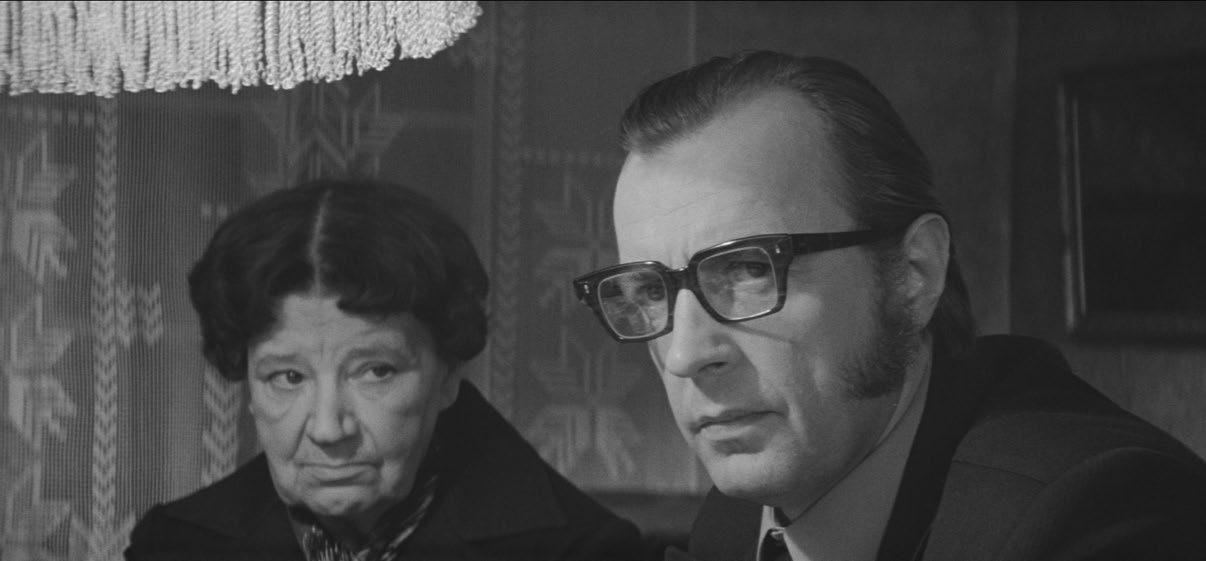
3 minute read
CLASSICS
The screenplays of all three features are based on the novels of the same titles written by popular Estonian writer Oskar Luts, published in the first decades of 20th century. These three feature films frame Kruusement's work as a film director. Besides the popular novels by Oskar Luts, Kruusement has also adapted the novel Rough Sea by August Gailit about life in a coastal village and also directed the feature film; and political thriller The Gang (1985) adapted from the novel The Glass Key by American writer Dashiell Hammett. The last feature was basically commissioned by the State Cinema Committee of the USSR who found filmmakers from Tallinnfilm film studio.
After completing Spring, Kruusement directed Don Juan in Tallinn in 1971 – a cheerful romantic revue feature full of music and dance, based on the play Once Upon a Time in Sevilla or Don Juan by Samuil Aljoshin. One could add that all films by Kruusement – both completed and the unfinished ones – have been based on literary works.
A Unique Reflection Of Estonian Life
The feature A Woman Heats the Sauna that arrived to cinema screens on January 2nd, 1979, denotes a remarkable event in its own time. The film is based on the novel Winter Holiday (1975), written by Villem Gross. Screenwriter Vladimir Valutski (who was also one of the screenwriters for the sci-fi feature Inquest of Pilot Pirx, Tallinnfilm’s collaboration film with Polish filmmakers) was invited from Moscow to work on the film. He chose the main storyline from the novel – recollections of the broken marriage of a middle-aged factory worker and the analysis of its motifs.
The role of the protagonist Anu Soldam is per- formed by Ita Ever who studied together with Kruusement at the Russian Institute of Theatre Arts in Moscow, and who has been a long-term leading actress at the Estonian Drama Theatre.
The story, the visual aspect and the actors' eyes speak for themselves.
From the left: Lembit Ulfsak, Lisl Lindau and Aarne Üksküla.
The event of the film’s arrival to the cinema meant a unique thing considering the era. Perhaps a brief background description would be relevant here to explain why the feature film was selected for production and set in contemporary times. Back at that time, the debut feature films by young film directors Olav Neuland, Peeter Simm, Valentin Kuik, Mark Soosaar, and Helle Murdmaa were in pre-production phase at Tallinnfilm film studio. And next to these there were several sci-fi feature film projects in co-production with other film studios.
The abovementioned directors – the future debutants and their feature films Nest of Winds, The Ideal Landscape, Victim of Science, Christmas in Vigala, and the children's film Bumpy were to reflect events and stories that took place in either a historical or fiction-
Film Director

ARVO KRUUSEMENT (B. 1928) studied in the Estonian studio of the Russian Institute of Theatre Arts in Moscow (GITIS) in 1948–1953. It is perhaps important to add that among the 24 graduates of that year were also five future Estonian filmmakers in addition to Arvo Kruusement: Kaljo Kiisk, Grigori Kromanov, Virve Aruoja, and Tõnis Kask. After his studies in Moscow, Kruusement worked as an actor and stage director in several theatres. al past. The sci-fi features that were made in Tallinnfilm film studios – Dead Mountaineer's Hotel (directed by Grigori Kromanov); Inquest of Pilot Pirx (directed by Marek Piestrak); and Murder on the 31st Floor (the debut feature by director Peeter Urbla) were supposed to take the cinema audience into the future. What's more, about the same time the "apocalyptic" film Stalker (directed by Andrei Tarkovsky, a collaboration between Mosfilm and Tallinnfilm film studios), was completed after difficult creative challenges in 1979.
In 1965, he started working in film studio Tallinnfilm. During the first years, Kruusement worked as a 1st assistant director with two feature films. He has written screenplays, directed a few documentaries, performed numerous background roles in his colleagues' films.
The main roles of A Woman Heats the Sauna are played by Ita Ever (on the left), Aarne Üksküla and Katrin Välbe.
In 1978, when A Woman Heats the Sauna was being produced, only one other feature film was made in Estonia, set in the present day – the folksy comedy Here We Are (directed by Sulev Nõmmik, produced by Eesti Telefilm). On one hand, we have stories of the past, and on the other hand, visions of the future.


And at the same time, Tallinn was preparing for the sailing regatta of the Summer Olympics of Moscow in 1980. So when considering the whole situation then it seems rational and logical that at least some of the film studios could have reflected the life of "right there and then" in the late 1970s – an era that later was called the era of stagnation and inactivity. And here Arvo Kruusement enters the game, and decides to direct a film whose screenplay is based on a novel depicting everyday life – Winter Holiday by Villem Gross.
THE EVERYDAY AND THE NOUVEAU RICHE "Everyday novel" was a fashionable term back then for describing a literary work that mainly focused on










